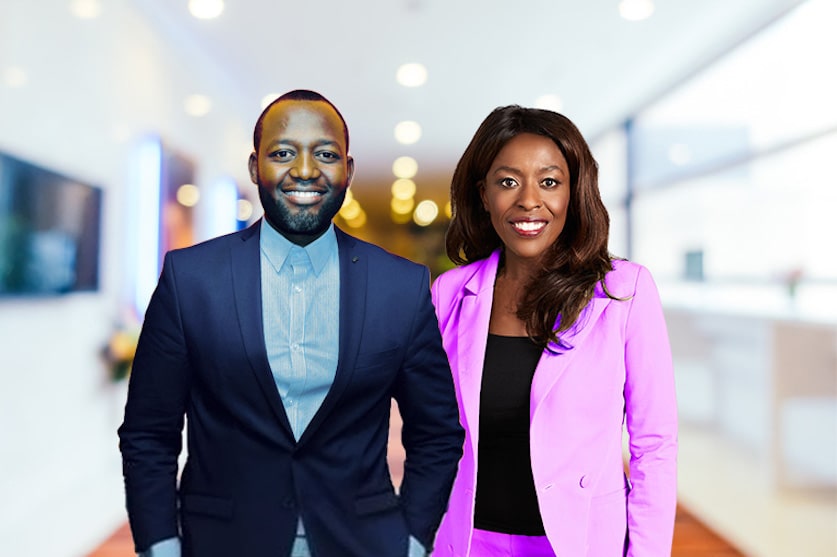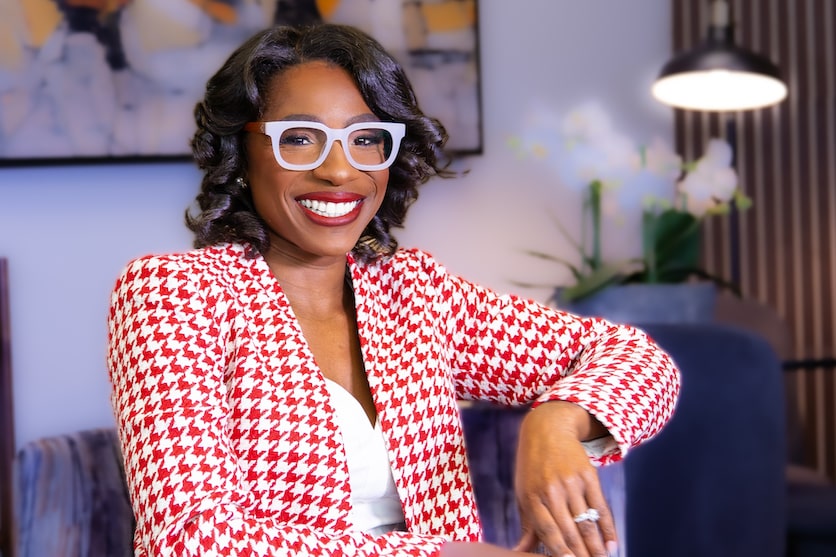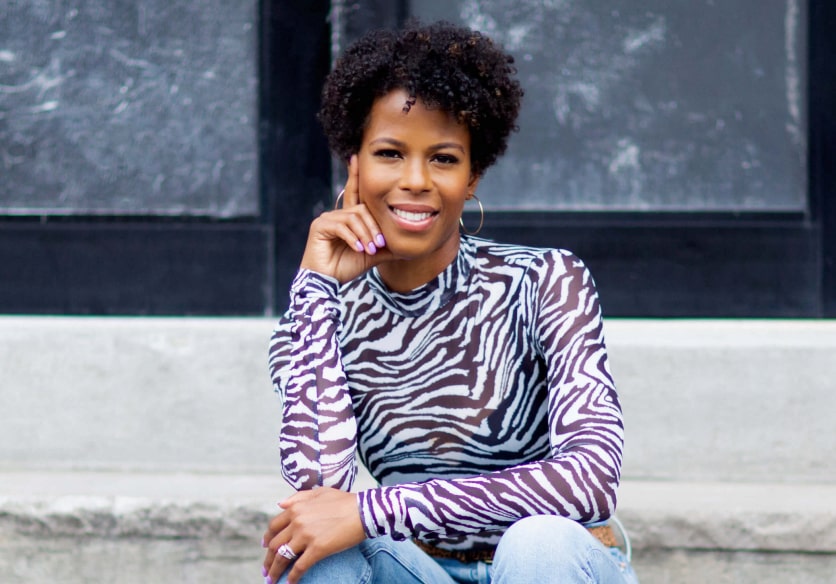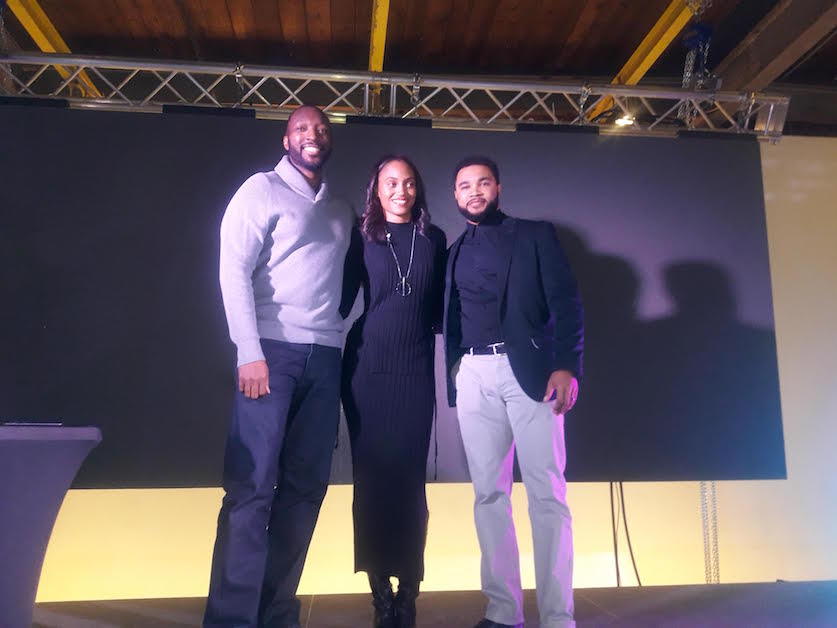
New Venture to Propel Black Tech Ecosystem Launches In Atlanta
February 7, 2019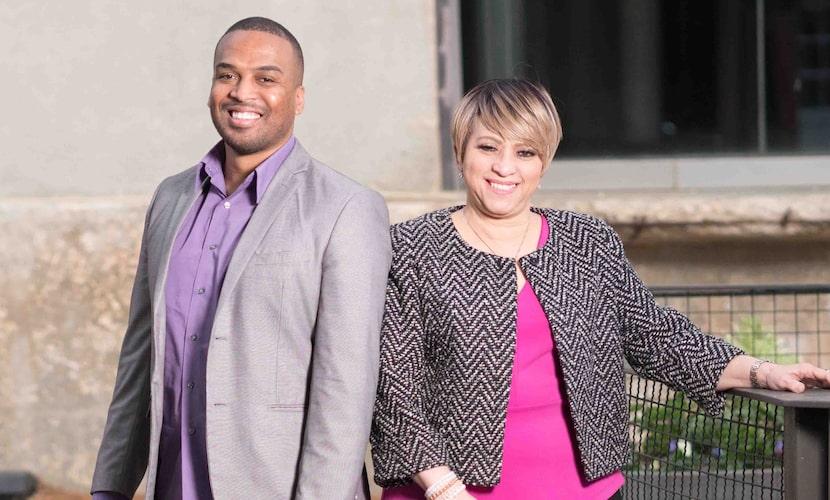
Atlanta Duo Launch First Ever Marketplace For Underrepresented Freelance Talent, Incluzion
February 14, 2019Latinx tech entrepreneur Andrea Guendelman talked how to navigate the workplace at this month’s TransformHER at LinkedIn’s offices in San Francisco.
Guendelman, the co-founder and CEO of Wallbreakers, was one of three keynotes at the annual event for professional Black & Latinx women working in tech and their allies. Through their conference and online forum, LinkedIn aims to create a platform for women of color to build stronger relationships and leverage resources to advance.
Guendelman’s speech – Unlocking Access: The Key To Opportunity – encourages corporate leaders to reach out to new recruits to offer mentorship or what she describes as ‘trade secrets” “I mean those things – from every day hacks to major strategic moves – that help an employee get noticed and recognized in an organization that help her or him develop skills and build a reputation,” she said.
In fact, Guendelman says millennials from underprivileged and underrepresented backgrounds are oftentimes at a disadvantage compared with their white or more privileged counterparts.
Read the full transcript of Guendelman’s speech below:
Lots of companies have trade secrets. Coke has its secret formula. Kentucky Fried Chicken has its secret blend of 7 herbs and spices. Google has the secret sauce in its search algorithm.
But companies and the corporate world, in general, have another set of trade secrets:
- How to behave in the office
- How to survive
- Even How to thrive in corporate culture.
Short clip from Guendelman’s keynote at LinkedIn’s TransformHER on February 1, 2019
For some young people, these secrets of the trade aren’t secret at all. They seem to come to them intuitively or instinctively. By contrast, for many young people from underrepresented backgrounds, these trade secrets seem locked in a vault as hard to Crack as Coca Cola’s.
For their privileged peers, they seem to instinctively “get it”. How to succeed in business without even trying. But behind the “instinct” and “gracefulness, we don’t see a lifetime of people – parents, family friends, teachers, professors, tutors, mentors, all of whom gave them “the talk” and passed on the subtle cues that come congenital ton privilege.
If we are ever going to level the playing field for young people from underprivileged and underrepresented backgrounds, we need to share these trade secrets. If we are going to truly nudge the arc of their careers higher, we need to help them gain the soft skills and emotional iq that enables success at your corporation and at any organization. Because it isn’t enough to know how to code or to build a financial model or to put together a market analysis.
We might’ve dismiss soft skills as soft-headed thinking. But we do so at our peril. How many brilliant people have you seen in your career not advance or fall by the wayside because they weren’t “clicking?”
Maybe they weren’t clicking not because they had an attitude problem. Maybe they weren’t clicking not because as some people thoughtlessly and prejudicially label them as “on the spectrum”.
Maybe the REAL reason they didn’t click is they weren’t on the “friends and family plan” that clues them into how the game is played”
“Can you hear me now?”
We need to hear them now. We need to listen to them. We need to communicate our wisdom.
I’m going to talk about 4 things:
First: what do I mean by trade secrets
Second: how do you compile your personal list of trade secrets.
Third, how do you pass along your list.
And Fourth, how do you know you’ve done good.
First, what do I mean by “trade secrets”?
I mean simply the “know how” that goes beyond the substance of the job.
I mean those things -from every day hacks to major strategic moves- that help an employee get noticed and recognized in an organization that help her or him develop skills and build a reputation. That help her or him find the ladders and avoid the chutes.
The first thing everyone advises is “find a mentor”. That’s where you come in. Make it easy on them. Don’t wait for a kid to approach you. It’s the first day at a new school. Go up to the kid having lunch by herself in the cafeteria. Model what we mean by “putting yourself out there.”
Once you break the ice, here are some of the trade secrets I think about:
- When do you speak up in a conference call?
- How do you know if you are speaking too much or too little?
- How do you cultivate powerful allies without brown nosing?
- How do you express a different opinion or offer a constructive critique?
- How important is it to socialize outside work?
- What’s a no-no in socializing?
- What is good office banter and where are the “no-fly zones”?
- When something goes right on a project, how you get appropriate credit while still being a team player?
- When something goes wrong, how do you avoid being the goat (and I don’t mean “greatest of all time”) while still being a team player?

TransformHER conference panelists [Photo Courtesy of LinkedIn]
How do you develop your own list?
Here is the tool you need to use – exercise your imagination. I’m not thinking JK Rowling or George RR Martin. But I am talking about imagining a time machine that takes you back to day 1 of your first job at age 22. For me, that was 3 years ago. “JK” as the kids say.
What mistakes did you make? What was the key advice you got? What would you tell your younger self about how to succeed?
Now kick your imagination into a higher gear. Imagine what is different about your organization in 2019. What is different about the world today? What is different about being a millennial?
How should people comport themselves on social media? What should their social media hygiene be like?
If they are passionate about a wide set of social values, when and how do they express them at work?
Third, how do you deliver your trade secrets.
As we have all learned by this stage in our lives, how you deliver the message is 10 times as important as what the message says
Here is one open secret. Millennials aren’t that different than boomers or Gen X: they don’t like being lectured to.
Start a conversation not a lecture.
Start the conversation by asking questions. Check-in. Get to know them. You may learn a few trade secrets yourself.
Be true to yourself all the time. Like any task in life, delivering advice works best when you are authentic. And millennials love authenticity.
If you are a direct person, be direct. If you are warm, be warm.
But also be aware of the limitations that come along with your style.
If you are warm and touchy-feely, you might have a hard time giving tough advice.
But the greatest mark of respect for someone is to treat them like an equal. A peer. A rational person. If you are doing something wrong, you’d want to know. So do they. Even if it may not seem like it at first. If you are a teddy bear, sometimes you need to go easier on the honey and not forget the vinegar.
By contrast, if you are a vinegary person – if you have that Prussian military streak – you will need to remember the spoonful of sugar.
The bottom line is to activate your imagination to practice radical empathy — not sympathy – no
One needs pity. But empathy. And this empathy is particularly important if you are talking across a generational divide, a class divide, a power imbalance, gender or sexuality difference, or to anyone who comes from a different set of cultural and life experiences.
Fourth, how do you know if you’ve done good?. How do you know if the message was received? And if it made a difference and moved the needle?
Sometimes you’ll get a thank you. Maybe even you’ll get to see your mentee put your advice into practice or even thrive after doing so.
But here is a trade secret most elementary and high school teachers will tell you: you may not see immediate results. You may not even get a thank you. Sometimes you may get an earful when you were trying to help.
The best thank yous come years later.
And here is the biggest trade secret of them all: you aren’t doing this merely for them. You aren’t just helping your organization develop its most precious resource. You are developing your own most precious resource — your own mind and your heart.
Are you a college undergraduate or recent computer science major? Interested in learning new skills and “trade secrets” to bag a job at a leading corporate firm? Find out more at Wallbreakers here.
Follow Andrea Guendelman on Twitter@FutureofWomen



